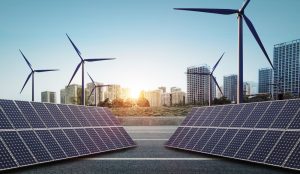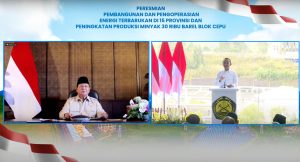Jakarta—As we approach the end of 2024, the world faces an unprecedented confluence of crises. Wars and conflicts, from Ukraine to Sudan to Israel’s continuing onslaught in Gaza and Lebanon, have dominated headlines. Over the past four years, West and Central Africa have seen seven military coups, destabilising a region already grappling with economic and environmental challenges.
These conflicts exacerbate a looming global issue: climate change. War not only claims lives but also wreaks havoc on the environment. Destruction of infrastructure releases pollutants, deforestation accelerates as displaced populations seek refuge, and the disruption of local economies forces the unsustainable exploitation of natural resources.
The theme very much colours the leaders’ speech at the beginning of UNFCCC COP29 in Baku, Azerbaijan. President Shavkat Mirziyoyev of Uzbekistan noted that, “Climate change is now emerging as a major global threat and influencing the escalating of geopolitical tensions. It primarily exacerbates the problems of poverty eradication, food and energy security as well as access to water and resources. In Central Asia we feel these problems especially acutely. Climate challenges are posing new barriers to improving the quality of life of our people and implementing national development strategies.”
These barriers become more pronounced in conflict zones as governments and communities struggle to prioritize climate resilience. The ripple effects are evident. In the Middle East, Iraq’s President Abdul Latif Jamal Rashid highlighted how “record heat waves, increasing sandstorms, and reduction in biodiversity” are displacing vulnerable communities, further destabilising the region.
Meanwhile, the Sahel region of Africa is experiencing some of the worst droughts in history. Faure Essozimna Gnassingbé, President of Togo, lamented, “Africa is paying the harshest price for climate change. We contribute a small amount in global emissions, but we incur the most severe impacts. It’s our ecosystems and food security and our economies which are bearing the brunt of this crisis.”
A climate of polarisation and technology
Amid these challenges, the world is navigating a technological revolution. While artificial intelligence is promising, it is leading to widespread misinformation and job losses. Societies are becoming more polarised, and misinformation exacerbates divisions, making collective action on climate even more difficult.
Global leaders are calling for decisive action as extreme weather events become more frequent. Nikos Christodoulides of Cyprus warned, “The impacts of climate change are intensifying with alarming speed. In the Mediterranean region, we’re witnessing a rise in extreme weather events, raging wildfires, severe and prolonged drought, extreme heat, sea level rise and catastrophic deadly flooding as we very recently saw happening in Spain.”
He continued: “Speaking also from my own country’s experience, these extreme weather events are impacting our ecosystems, our economies, including agriculture and tourism, our communities and the quality of life of our people. They act as a stark warning and also highlight the urgent need for decisive coordinated action.”
The wars of 2024 demonstrate that conflict and climate change are deeply intertwined. Without peace, effective climate action is unlikely. As the world watches the U.S. elections and navigates a rise in populism, the decisions made in 2024 will shape our planet’s trajectory. Collaboration in mitigating climate impacts and resolving conflicts is not just necessary—it is imperative for our survival. (nsh)













